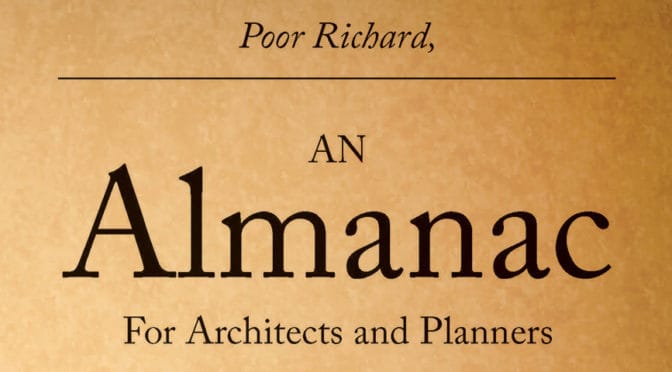As architects, designers, and planners, we sometimes take ideas, problems, and situations and make them more complicated than they really are or, as Poor Richard says, “compress the most words into the smallest idea.” But when it comes to the architecture of our cities, sometimes the simplest solution really is the most elegant and, perhaps even more importantly, the idea behind that solution is best stated simply so. Poor Richard, An Almanac for Architects and Planners excels at what is not typical for our profession, namely using the fewest words to express the biggest ideas, in a decidedly witty manner.
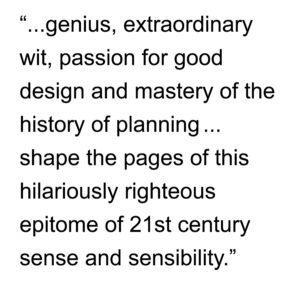 The breadth of inspiration Major draws upon for Poor Richard’s sayings and witticisms is inspiring: Benjamin Franklin, Thomas Jefferson, Oscar Wilde, and Bill Hillier; the last of whom had a huge influence on Major’s career and outlook. This barely scratches the surface as the fingerprints of Le Corbusier, Andres Duany, Alvar Aalto, Steve Mouzon, Mies van der Rohe and Robert Venturi are also evident in many of the sayings in this book. However, it is Mark’s own genius, extraordinary wit, passion for good design and mastery of the history of planning that shape the pages of this hilariously righteous epitome of 21st century sense and sensibility.
The breadth of inspiration Major draws upon for Poor Richard’s sayings and witticisms is inspiring: Benjamin Franklin, Thomas Jefferson, Oscar Wilde, and Bill Hillier; the last of whom had a huge influence on Major’s career and outlook. This barely scratches the surface as the fingerprints of Le Corbusier, Andres Duany, Alvar Aalto, Steve Mouzon, Mies van der Rohe and Robert Venturi are also evident in many of the sayings in this book. However, it is Mark’s own genius, extraordinary wit, passion for good design and mastery of the history of planning that shape the pages of this hilariously righteous epitome of 21st century sense and sensibility.
Many of the ideas are common sense, more still are deeply profound, others require much thought on our part. Throughout the Almanac, Major uses humor to otherwise soften what are some hard truths for our profession. The ideas often question ‘conventional wisdom’ about the architecture of our cities. Ultimately, Major’s goal is a simple one, to compel us, as professionals, to examine more heartily our acceptance of current laws and practices as they have profound implications for the civil aspect of civilization and its lasting impression on the future.
Poor Richard, An Almanac for Architects and Planners is a useful and handy tool for any architect, designer, or planner to have on their desk and reference every day of the year for precisely this reason, ably assisted by the chiaroscuro of illustrations presented in a stark yet elegant manner. The message of Poor Richard, AN Almanac for Architects and Planners is clear: begin to think differently… and more carefully than ever, about our role as stewards of civility.
By Julia Starr Sanford
April 6, 2013
Amelia Island, Florida
Julia Starr Sanford is founding principal of Starr Sanford Design, a residential design and development firm based in Amelia Island, Jacksonville, and Rosemary Beach, FL. She is Founding Director of the Sky Institute + Foundation for the Future, a non-profit organization dedicated to building sustainable communities in the US, Australia, Bahamas, and Central America. She is a founding partner in StudioSky with Steve Mouzon and Eric Moser and member of the Congress for New Urbanism. She is a graduate of the University of North Carolina and Georgia Tech.
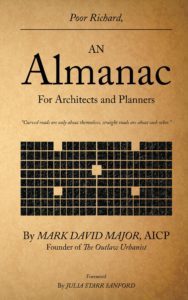 Poor Richard, An Almanac for Architects and Planners by Mark David Major, featuring Foreword by Julia Starr Sanford is available from CreateSpace (click here) and Amazon (click here) for $9.99, 136 pages, 52 black and white illustrations.
Poor Richard, An Almanac for Architects and Planners by Mark David Major, featuring Foreword by Julia Starr Sanford is available from CreateSpace (click here) and Amazon (click here) for $9.99, 136 pages, 52 black and white illustrations.
 Poor Richard, An Almanac for Architects and Planners (Volume 1)
Poor Richard, An Almanac for Architects and Planners (Volume 1)
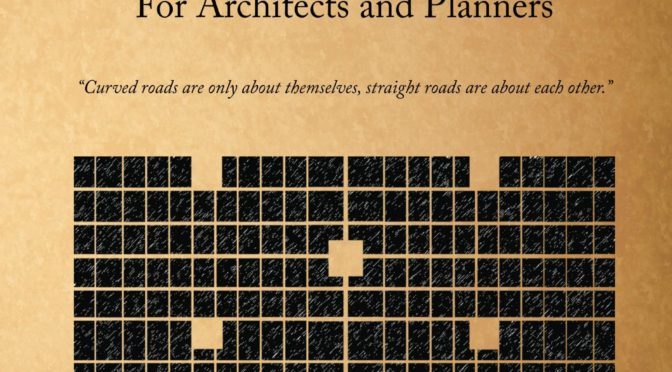
 The breadth of inspiration Major draws upon for Poor Richard’s sayings and witticisms is inspiring: Benjamin Franklin, Thomas Jefferson, Oscar Wilde, and Bill Hillier; the last of whom had a huge influence on Major’s career and outlook. This barely scratches the surface as the fingerprints of Le Corbusier, Andres Duany, Alvar Aalto, Steve Mouzon, Mies van der Rohe and Robert Venturi are also evident in many of the sayings in this book. However, it is Mark’s own genius, extraordinary wit, passion for good design and mastery of the history of planning that shape the pages of this hilariously righteous epitome of 21st century sense and sensibility.
The breadth of inspiration Major draws upon for Poor Richard’s sayings and witticisms is inspiring: Benjamin Franklin, Thomas Jefferson, Oscar Wilde, and Bill Hillier; the last of whom had a huge influence on Major’s career and outlook. This barely scratches the surface as the fingerprints of Le Corbusier, Andres Duany, Alvar Aalto, Steve Mouzon, Mies van der Rohe and Robert Venturi are also evident in many of the sayings in this book. However, it is Mark’s own genius, extraordinary wit, passion for good design and mastery of the history of planning that shape the pages of this hilariously righteous epitome of 21st century sense and sensibility.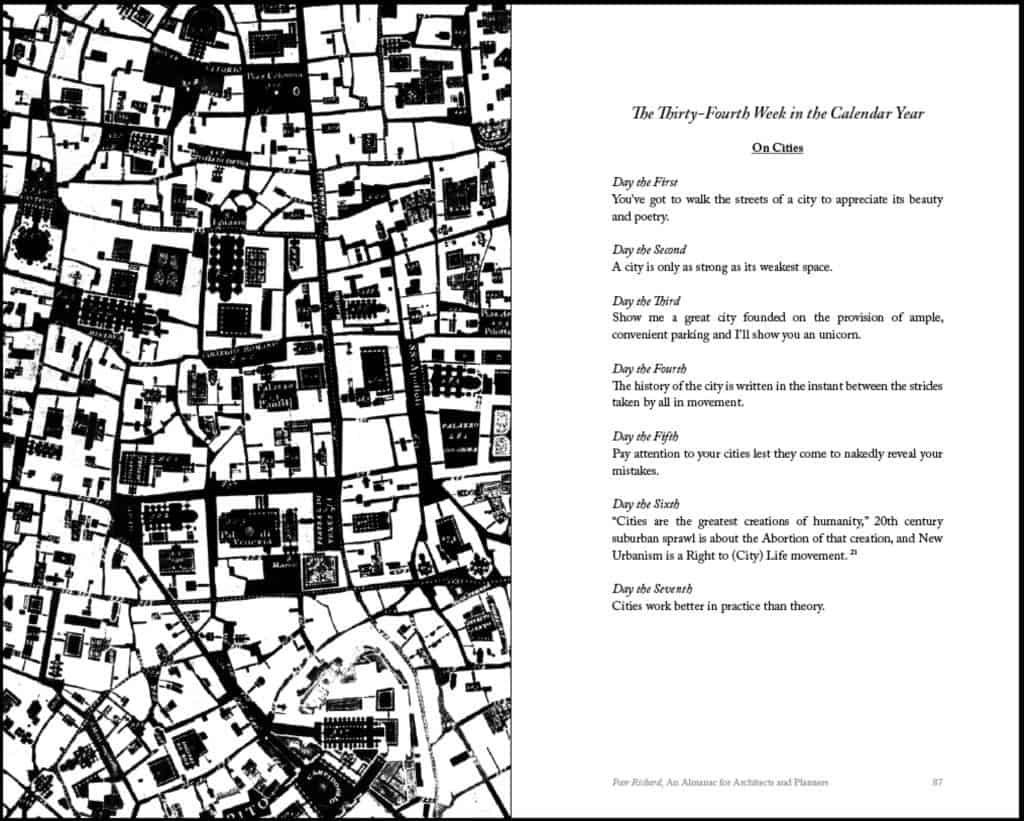

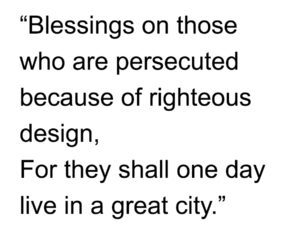 Blessings on the placemakers,
Blessings on the placemakers,